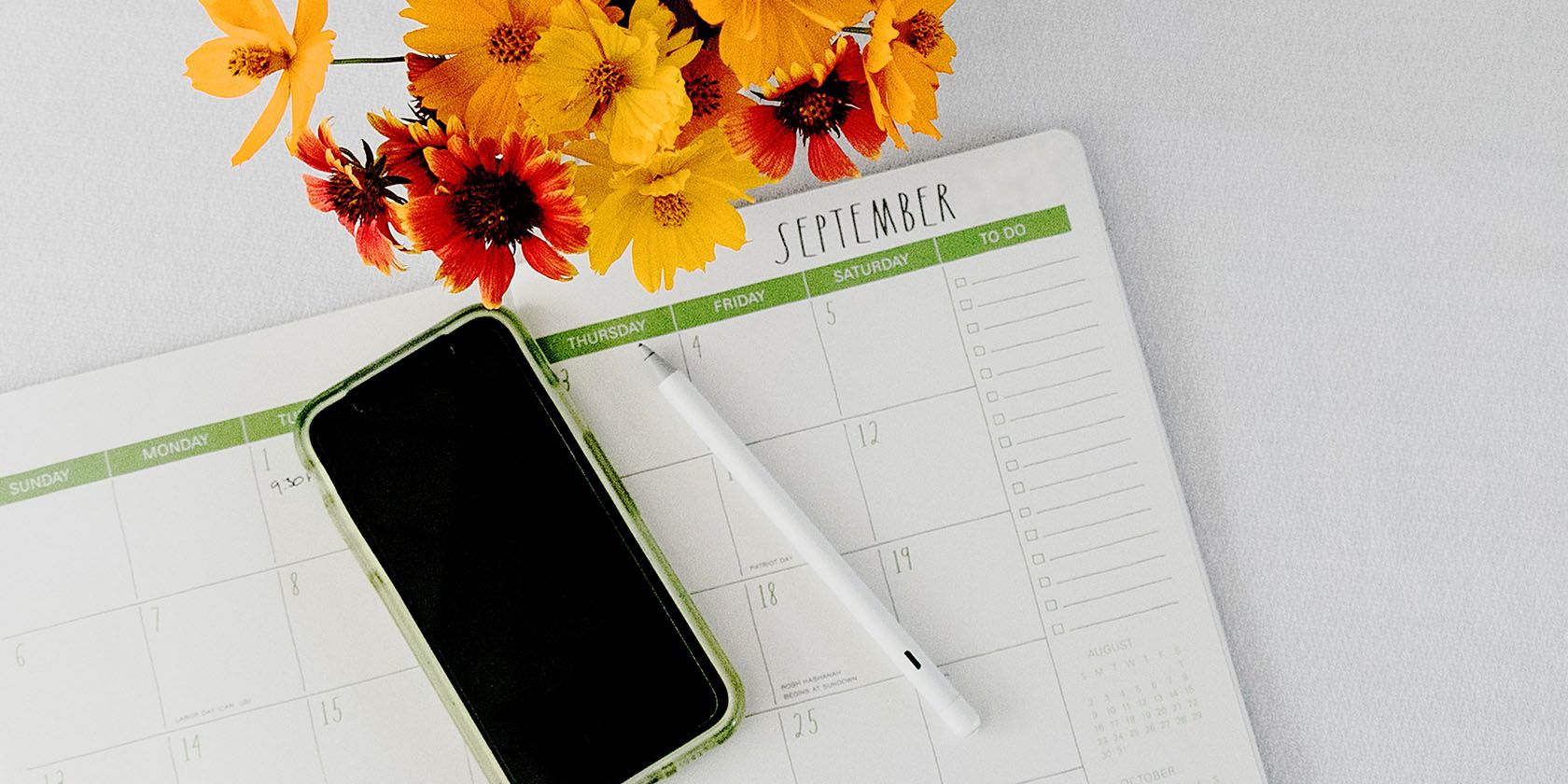Time management is a common topic in productivity circles, but it may also impact your sense of well-being, too. Here's how to use some common time management skills to help support your wellness goals, even during those hectic days.
Time Management and Your Well-Being
For the most part, using effective time management skills may help improve feelings of self-efficacy and (potentially) even self-esteem. In fact, time management may have a bigger impact on your overall sense of well-being than it does on productivity. Feeling a greater sense of control over your own schedule and making time for activities that provide sense of purpose can be incredibly positive.
Best of all, it’s possible to learn better time management skills at any point. Here are a few ways to tweak your current time management habits to help meet your wellness and self-care goals as well.
1. Identify Your Own Time Management Needs
There isn’t a one-size-fits-all approach to creating a schedule that works best for everybody. Learning how to understand your own time management needs can help bring attention to what matters most for your particular situation.
For instance, recognize the times of day when you feel most energized, and try to schedule the most demanding activities during those windows. If you're definitely not a morning person, for instance, then try to schedule workout times for the evenings or afternoons when you're more alert.
In addition, not everyone has the same needs when it comes to creating a schedule. For instance, you may benefit from the best time-planning tools for people with executive function disorder or want to try out some different strategies entirely. Experiment with a variety of techniques and approaches to time management and scheduling to find the methods that work best for you.
2. Find (and Use) a Planner You Love
It isn’t the most revolutionary advice, but keeping all of your to-do lists and goals in one space can do wonders for improving time management skills. It's easier to see where all of your time and effort go during the day as well.
Whether you use a paper journal, a free weekly planner, or an app like Structured, choosing a planning tool and sticking with it can make time management feel a lot more manageable.
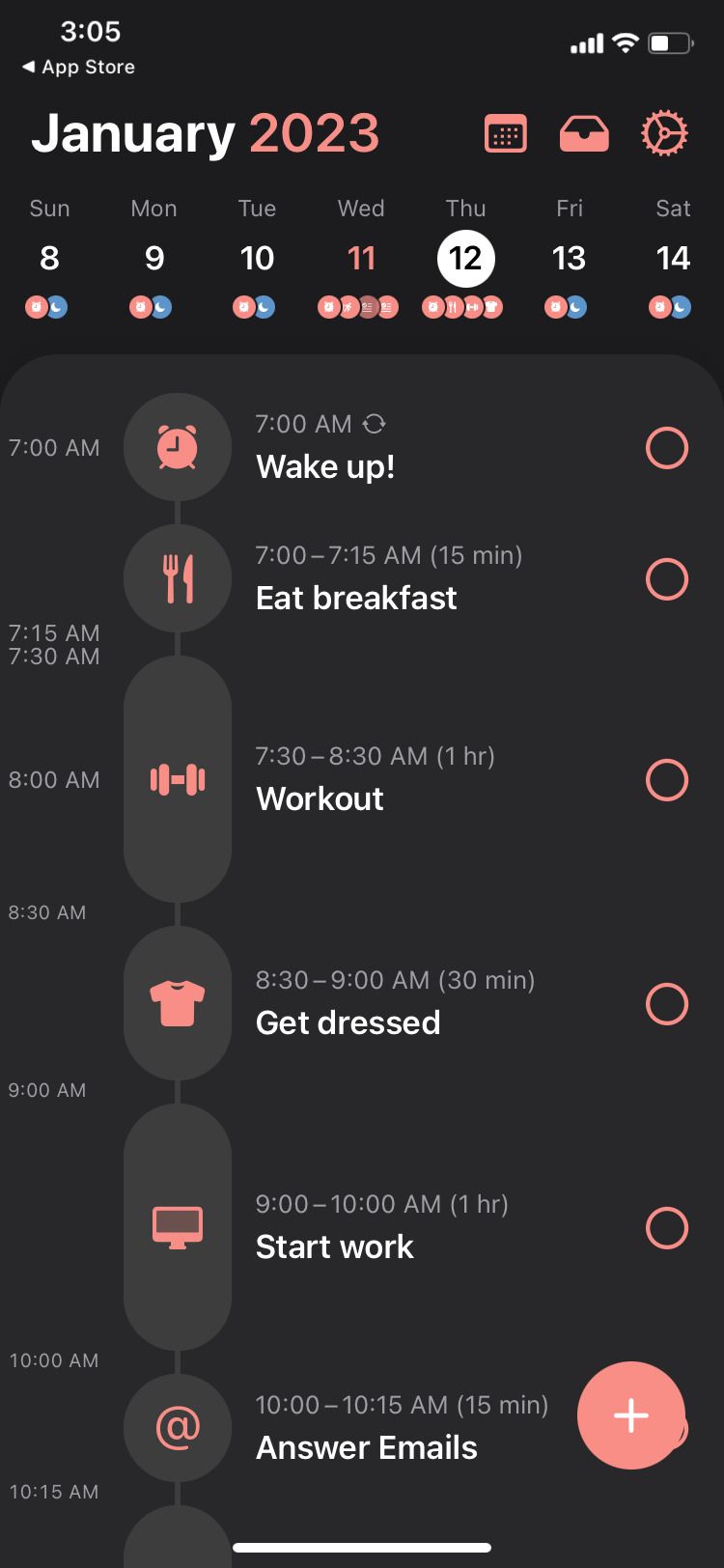
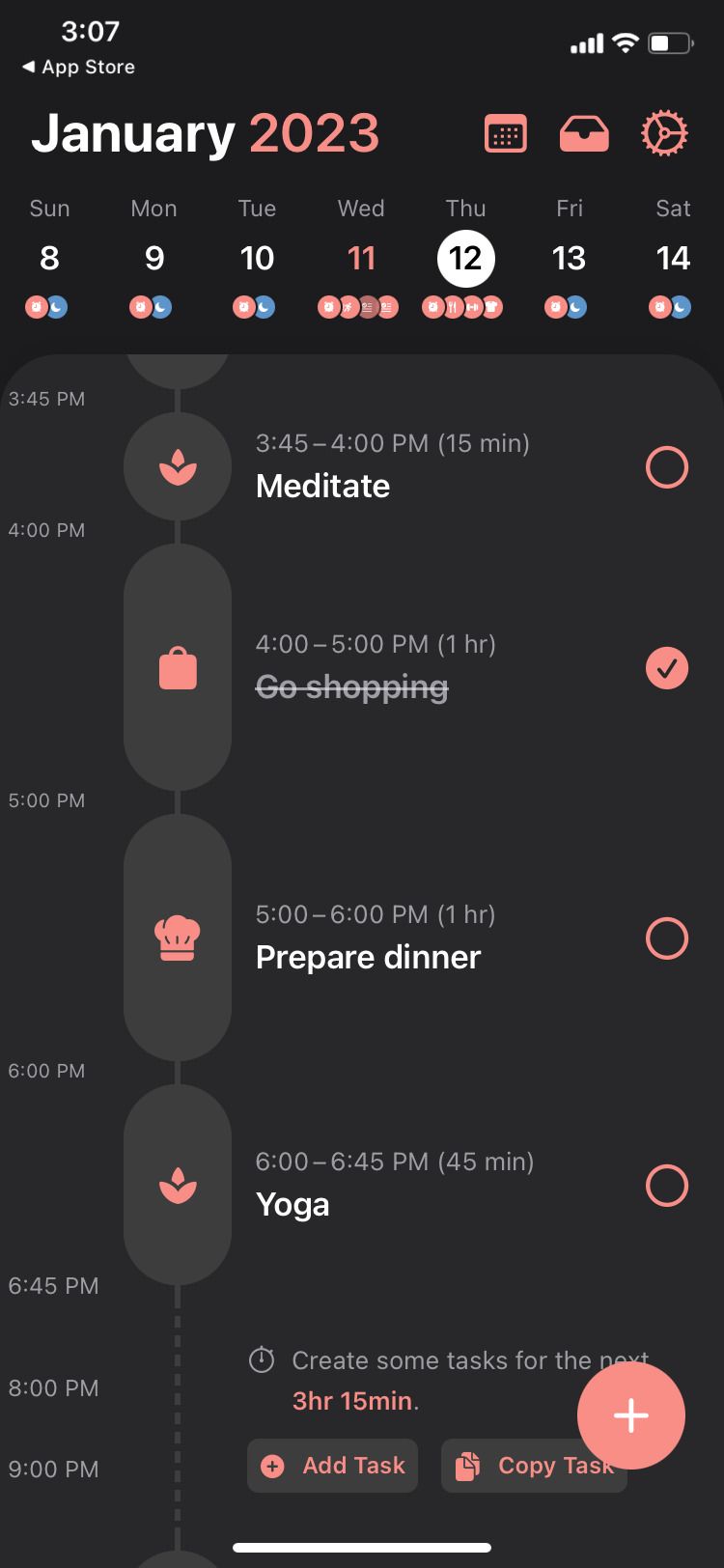
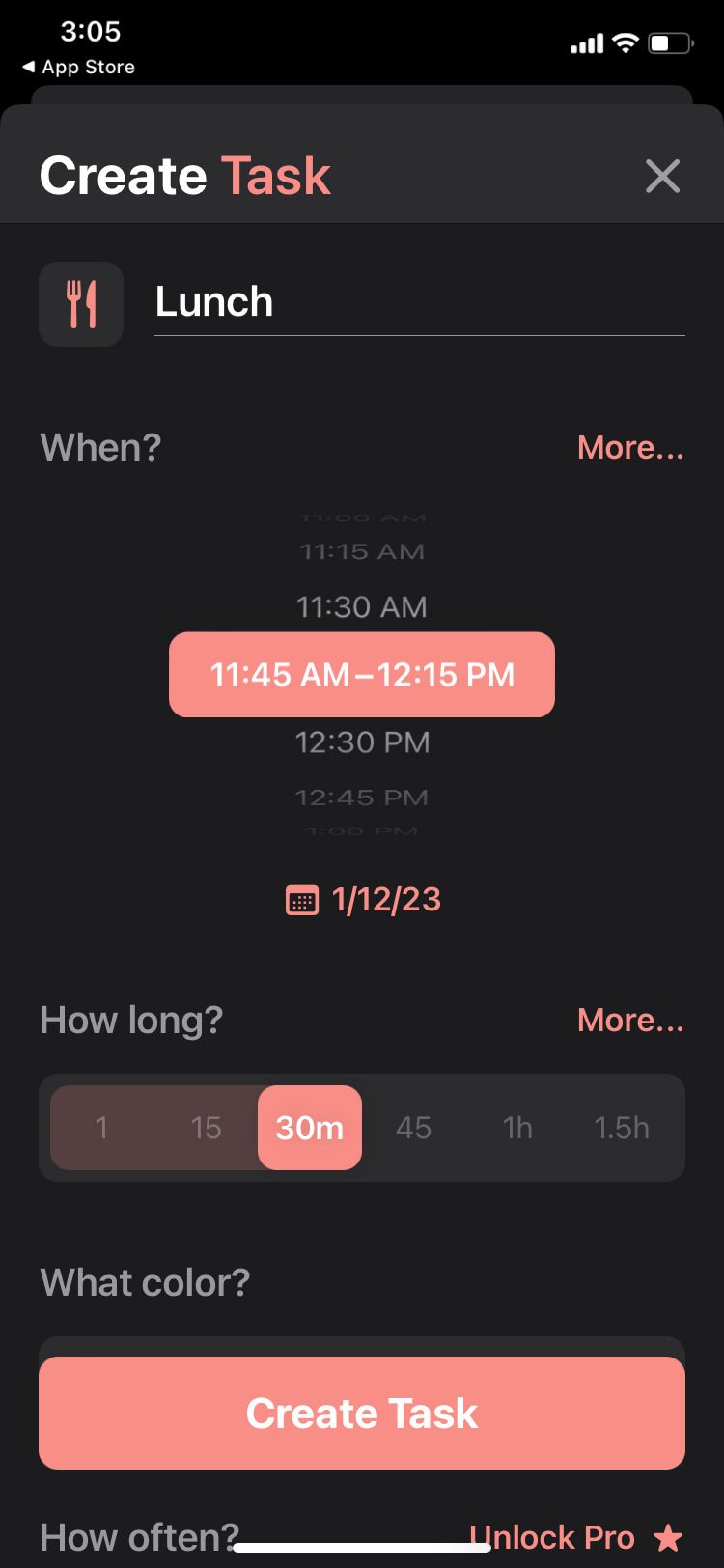
The Structured app lets you set up a simple schedule for all daily tasks, including exercise, meal times, and meditation. It's a handy choice for someone who wants to have their schedule on hand at all times.
Download: Structured - Daily Planner for iOS (Free, in-app purchases available)
3. Guard Your Time
Once you have a time management plan in place that’s going well, try to avoid distractions that can work against you. This may mean letting go of activities or old habits that are no longer beneficial (such as scrolling your phone late into the evening and disrupting your sleep schedule).
In addition, setting healthy boundaries at work can help make the most of your time on the clock as well. This can also prevent feelings of overwhelm and burnout.
4. Automate and Delegate Wherever Possible
Try to reduce friction in your daily schedule and automate as much as possible. This helps free up time and mental space, as well as reduce stress. For instance, invest in a robot vacuum to shave a little time off your usual cleaning routine. Put bills on autopay. Consider using a grocery delivery service, or download a great meal planning app to streamline your whole food prep process.
Looking at your schedule with a critical eye and making a few tweaks may save hours throughout the week—time you can use for fun activities or rest.
5. Schedule Time for Your Own Wellness and Relaxation
Whatever type of schedule you choose, set aside some time for workouts, meditation sessions, yoga routines, or anything else that’s important to your well-being. While you’re at it, schedule blocks of time to spend however you want, whether that’s gaming with friends or simply watching a movie.
Sometimes, having these goals written down on the schedule makes following through much easier. If you don't have a particular activity in mind, set aside a block of time designated for doing nothing at all.
6. Avoid Multitasking
Although there are many different ways to approach time management, there's one practice it's often better to avoid: multitasking. Although it can feel like you're being super efficient, multitasking often increases the amount of time it takes to complete tasks, according to the American Psychological Association.
In many cases, there's also a correlation between internet multitasking and increased stress levels, according to research in Media Psychology. So in addition to not working very well, multitasking can also bring unnecessary pressure into your day.
On the other hand, single-tasking can improve your productivity because you focus deeply on one activity at a time. It's exactly what the name implies: giving all attention to one task at a time throughout the day. Eliminating distractions is the key for this technique.
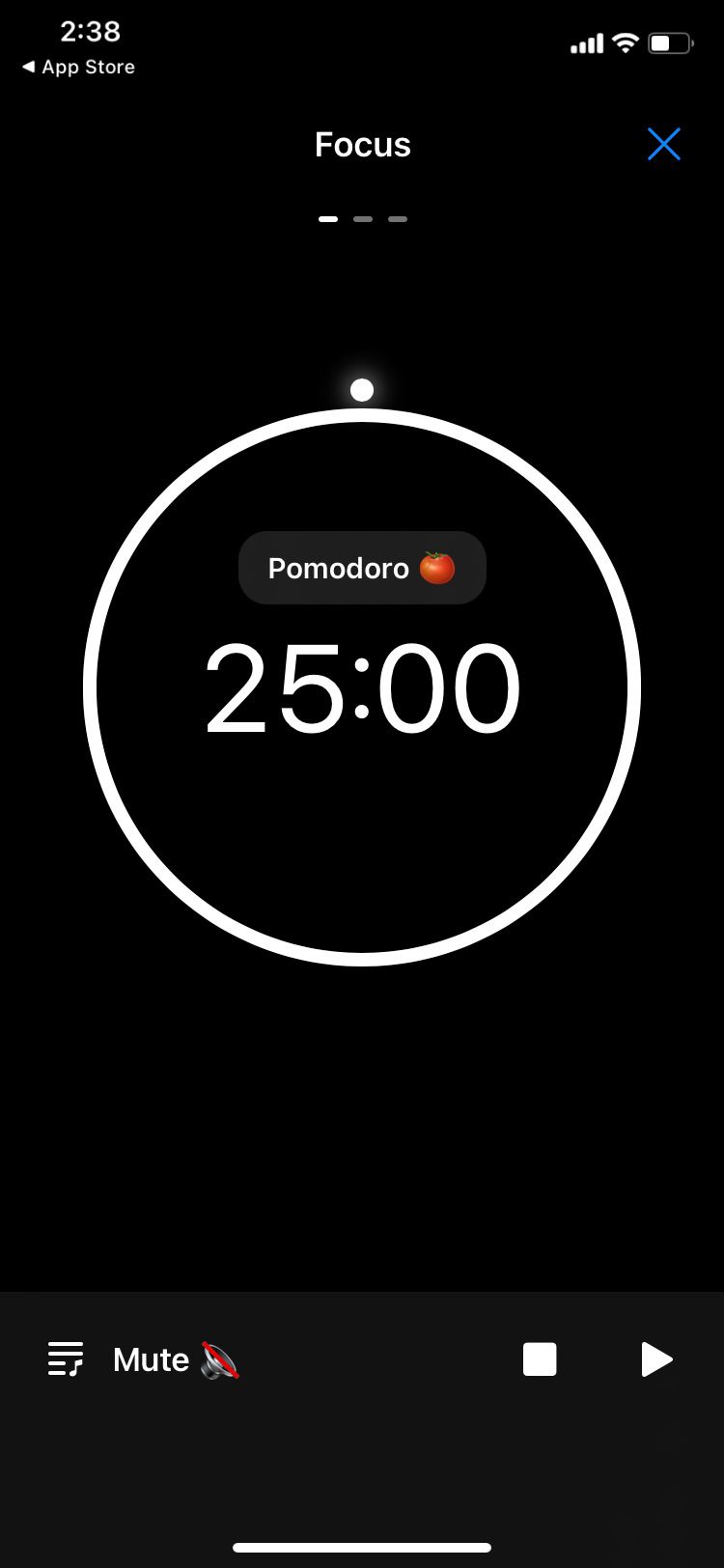
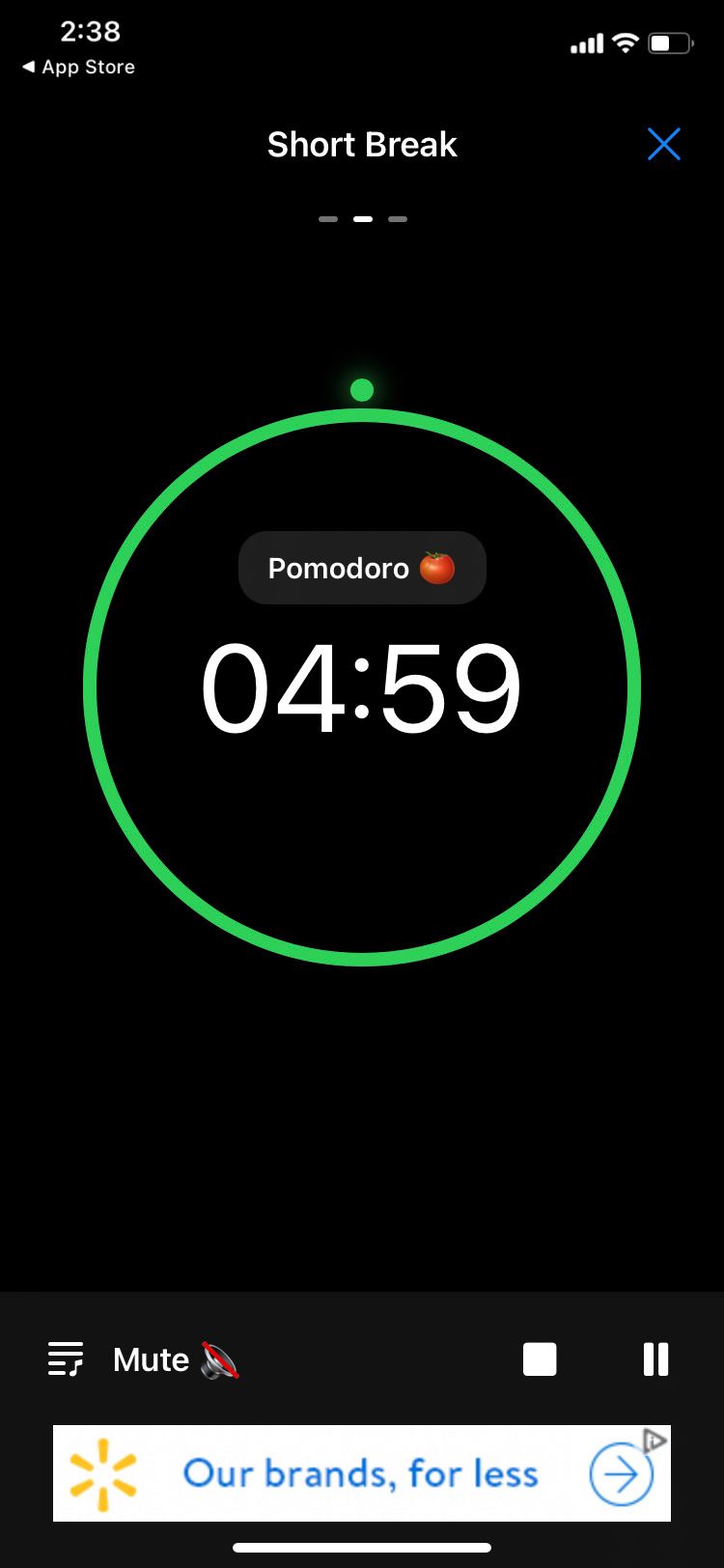
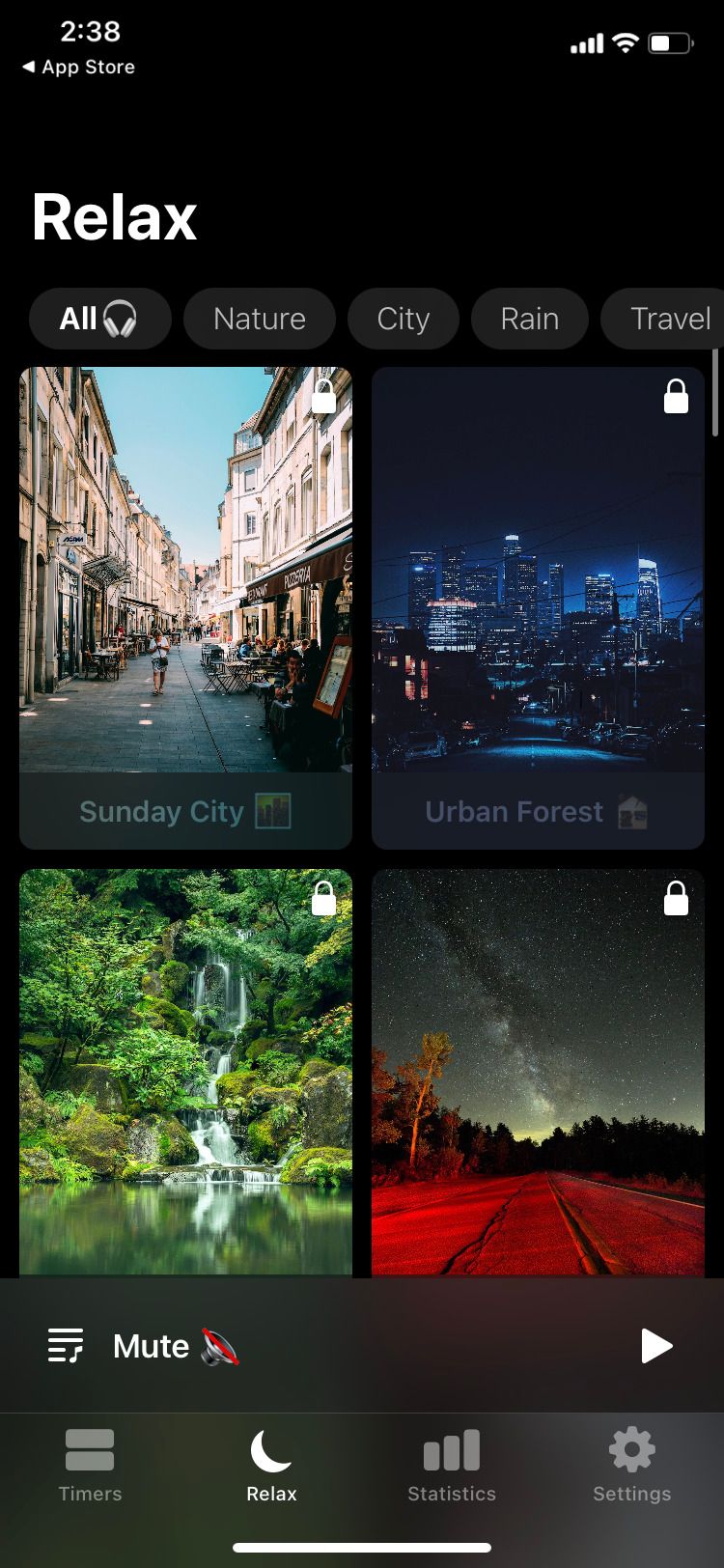
To help focus, set a timer for each activity, or use an app like Pomodoro - Focus Timer to help break tasks into regular intervals. The idea is simple: focus on the intended task as long as the timer is running, then take regular breaks when it says to stop. It's a straightforward way to organize each day, as well as (hopefully) decrease the stress and overwhelm that can go along with multitasking.
This particular app also includes a selection of relaxing soundscapes to improve your focus even more.
Download: Pomodoro - Focus Timer for iOS (Free, in-app purchases available)
Meet Your Self-Care and Wellness Goals With Time Management Tips
For many people, maintaining a structured schedule and practicing smart time management is an excellent way to reduce stress and make more time for enjoyable activities each day. By downloading a few apps, playing around with your schedule, and dedicating time to your own wellness and self-care needs, you can use common time management skills to create a less stressful, more pleasant routine.

